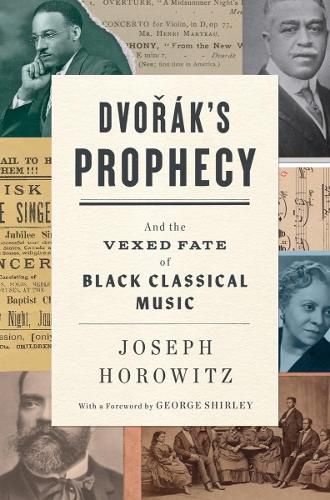Readings Newsletter
Become a Readings Member to make your shopping experience even easier.
Sign in or sign up for free!
You’re not far away from qualifying for FREE standard shipping within Australia
You’ve qualified for FREE standard shipping within Australia
The cart is loading…






In 1893 the composer Antonin Dvor??k prophesied a great and noble school of American classical music based on the searing negro melodies he had excitedly discovered since arriving in the United States a year before. But while Black music would found popular genres known the world over, it never gained a foothold in the concert hall.
Joseph Horowitz ranges throughout American cultural history, from Frederick Douglass and Huckleberry Finn to Gershwin’s Porgy and Bess and the work of Ralph Ellison, searching for explanations. Challenging the standard narrative for American classical music fashioned by Leonard Bernstein and Aaron Copland, he looks back to literary figures?Emerson, Melville, and Twain?to ponder how American music can connect with a usable past. The result is a ?new paradigm? that makes room for Black composers including Harry Burleigh, Nathaniel Dett, William Dawson, and Florence Price to redefine the classical canon.
$9.00 standard shipping within Australia
FREE standard shipping within Australia for orders over $100.00
Express & International shipping calculated at checkout
In 1893 the composer Antonin Dvor??k prophesied a great and noble school of American classical music based on the searing negro melodies he had excitedly discovered since arriving in the United States a year before. But while Black music would found popular genres known the world over, it never gained a foothold in the concert hall.
Joseph Horowitz ranges throughout American cultural history, from Frederick Douglass and Huckleberry Finn to Gershwin’s Porgy and Bess and the work of Ralph Ellison, searching for explanations. Challenging the standard narrative for American classical music fashioned by Leonard Bernstein and Aaron Copland, he looks back to literary figures?Emerson, Melville, and Twain?to ponder how American music can connect with a usable past. The result is a ?new paradigm? that makes room for Black composers including Harry Burleigh, Nathaniel Dett, William Dawson, and Florence Price to redefine the classical canon.